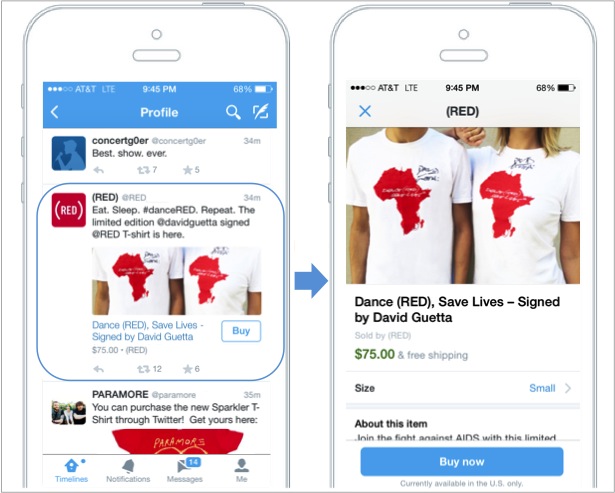Internet Marketing News September 2014 Recap
October 1, 2014Happy October! Here is an overview of the top internet marketing news stories of September 2014.
- Google rolled out a new ad extension, Callouts, which allows advertisers to display additional text like special offers without needing to add a link to a landing page.
- There is a change in how ad extensions will display on mobile devices. For ads that are expected to underperform, Google will remove the second line of ad copy and replace it with an ad extension such as sitelinks, location, or callouts. It is unclear how Google will judge this but this should yield a higher CTR, as users are more likely to click on ad extensions.
- Google announced structured snippets, where the search engine will show snippets of data, relevant to the query, directly within the snippets of the search results. Below is an example provided by Google:
- Tool for power AdWords users are rolling out, the first of which is ad customizers. Ad customizers are a set of parameters that allow ad copy to be updated dynamically in real time.
- Google began rolling out an update to its Panda Algorithm, Panda 4.1, in order to further filter out low-quality-content sites.
Bing
- As expected, Bing added close variant for broad match modifier. Bing has been testing this feature after Google announced it last month.
- Bing Ads launched Campaign Planner, a new tool that will help marketers better understand the competitive landscape, see keywords ideas, and update their campaigns. This includes search traffic trending and forecasting data, industry benchmarks, competitor performance, and keyword suggestions.
- A redesigned version of Bing’s mobile image search was rolled out, which is touch-friendly and responsive based on the user screen display. Image results will now expand to the user’s full screen and users can swipe between images.
- Bing announced dynamic sitelinks where Bing will create and display relevant inks if an advertiser hasn’t created one on their own. Google launched a similar option back in July.
Yahoo
- Yahoo continues to retire products in an effort to focus on specific areas, this time closing down Yahoo Directories.
YouTube
- YouTube officially retires its keyword tool in favor of the Display Planner in AdWords tool. The replacement tool is little more complicated; a user needs to also filter for “only video keywords” to get the right data.
- YouTube launched real-time analytics with minute-by-minute video view count.
- Facebook announced it is now considering why users hide an ad as a signal about whether to serve ads to other people. Facebook will be asking more questions after a user hides the ad such as: was it offensive, not relevant, spam, or is the user seeing the ad too many times.
- It rolled out Facebook Media, a hub for public figures and media organizations to learn how to use Facebook better.
- Facebook’s algorithm has been updated to prioritize recent stories of all kinds, from breaking news to a new TV episode.
- Facebook launched the new Atlas, an ad-serving platform that enables advertisers to “create, buy, measure and optimize digital campaigns across devices and across the web.” Atlas focuses on audience buying, relying heavily on Facebook data rather than cookies. Facebook acquired Atlas from Microsoft for an estimated $100 million in 2013.
- Twitter began testing a Buy button to enable in-tweet transactions. Specifically, Twitter has been working with Eminem, Brad Paisley, Burberry, Demi Lovato, the Nature Conservancy and the Home Depot.
- The social network announced a new audience manager tool that allows targeting by mobile number and app ID. These search parameters can be used with an existing customer base to promote new offerings or to foster repeat purchases.
- Twitter updated its iOS app with a redesigned profile view and iOS 8 notification support. The new profile design emphasize user bios, photos and favorites.
- Amazon extends its Twitter integration, giving users the ability to add to Amazon wish lists using #AmazonWishList.
- Pinterest is laying more ground work on building out its advertising platform by announcing an upcoming change to their privacy policy. In a recent post, Pinterest said their plan “is to make Promoted Pins more relevant to Pinners, and help advertisers understand how their ads impact their business. On October 19, 2014, we’ll make a few updates to our Privacy Policy to explain those plans.”
Foursquare
- Swarm updated its app, bringing back two features from the original Foursquare app: themed leaderboards and golden stickers. The leaderboard is organized by category, for instance, a user can be the leader among his or her friends for coffee shop check-ins. Users who are in the lead receive a golden sticker.
- LinkedIn quietly retires inMaps, a tool that visualizes a person’s connections on the platform. The social platform said it was focusing on developing a new way to visualize the network.
- LinkedIn gives users more control over their data by allowing them to download personal information that also includes interactions with ads. This is similar to a feature Facebook already has included.
Have any questions about any of the above stories or think we missed something? Let us know in the comments section below. Also, be sure to check back in early November for our October recap. In the meantime, check out our Thoughts Page featuring our latest publications, blog posts, and featured articles; and sign up for the Catalyst Must-Have Digital Insights e-Newsletter for the latest thought leadership, industry updates, and Catalyst news.







